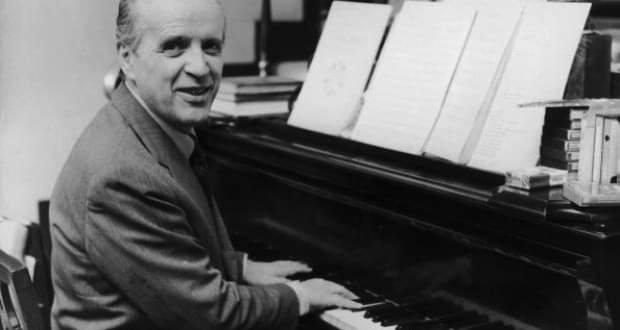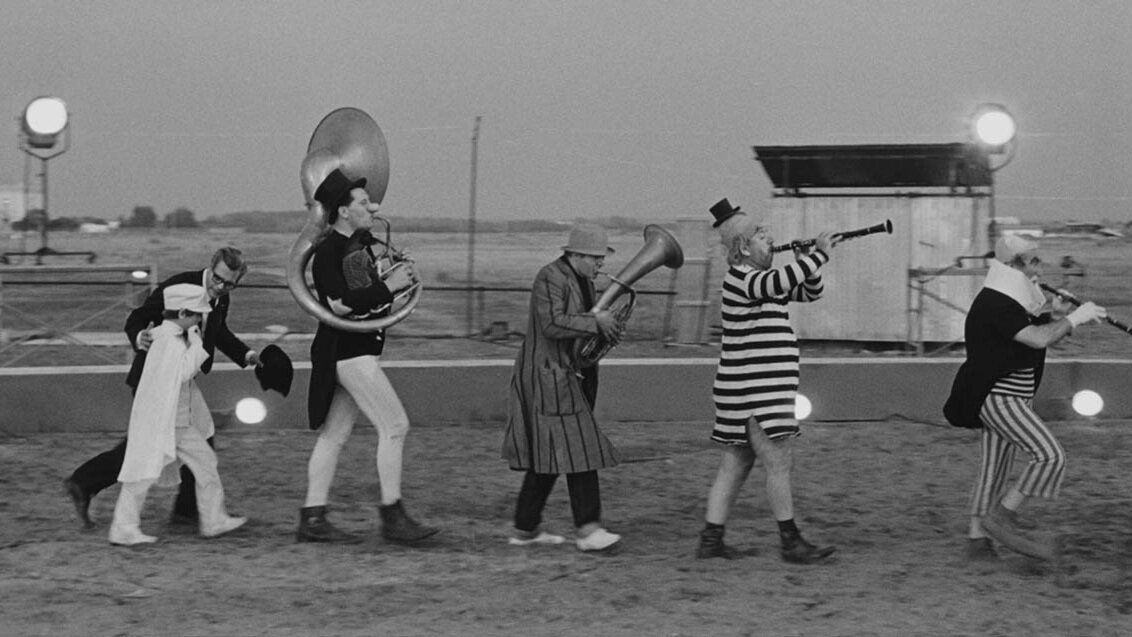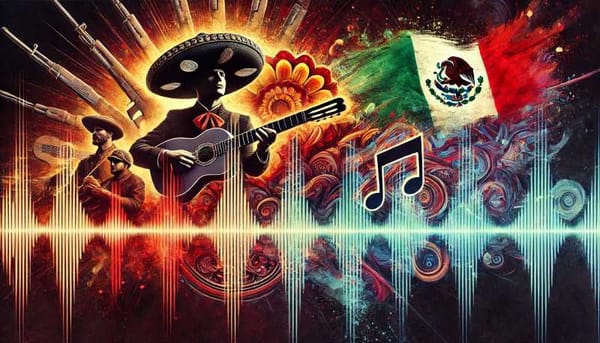Nino Rota, the child prodigy and his music
Nino Rota stood out for his precociousness: at the age of five he composed an oratorio, and at thirteen he composed a lyrical comedy: Prince Porcaro (1925). Nino Rota won an Oscar for the music of The Godfather II (1974).

It was discovered that Sergei Rachmaninov, the great composer, always included in his works the line of the Dies Irae, a sacred Gregorian chant that conjured the perfect realization of the composition. In reality, the reason why this Gregorian chant was used in this way by Rachmaninov we will never know, but it gave rise to the most intricate harmonic links ever known. Something similar happens with Nino Rota, for in the music he composed for about 34 films, we constantly hear the most famous song that Kurt Weil composed for The Threepenny Opera: Mackie Messer (1928).
This simple harmonic scheme by Mackie Messer: C-Dm-G7-C-AmDm-G7-C, had already been used in the cinema as the theme of the movie The Third Man (1949). The Harry Lime Theme was played by Anton Karas on the zither, and ever since Nino Rota saw that film, that theme was his obsession and salvation, his magic incantation to involve the viewer completely in the most powerful artistic event of the 20th century: the cinema.
Nino Rota learned music in a family of musicians; in his home, which was very close to La Scala, they continually received distinguished visitors such as Stravinski, Toscanini, Giordano, and Castelnuovo Tedesco. At the age of eight he composed his first work and was admitted to the Santa Cecilia Conservatory in Rome as a child -only two cases are known in which a child has been admitted to this conservatory-, he also studied literature at the University of Milan. His teachers Ildebrando Pizzetti and Alfredo Casella never imagined the projection that Rota's music would have through the cinema; at that time few academic composers considered making music for the film as a profession, as they heard with sadness how their great scores were reduced to an infamous "pedacería" during the editing process. Rota faced the challenge of communicating in bits of the song; he understood that the image accompanied by the necessary notes becomes something new that has the forcefulness of an archetype, that is a powerful message that travels and is irremediably contagious, a wheel that starts and does not stop, just like his name: Rota.

The first three films that Rota approached musically: Zaza, Under the Sun of Rome, and The Glass Mountain have the correctness and magnificence of Puccini, but still in these did not yet appear Rota's cinematographic signature. It was not until 1952 when Harry Lime's theme was already widespread, and he took it as musical inspiration for the film The White Sheikh. The success was immediate and Fellini named him his musical collaborator of choice. Thus was born Nino Rota for the cinema.
Nino and the trumpet
Nino Rota had a preference for the trumpet, the biblical trumpet? It is impossible to remember Gelsomina (La Strada) without evoking those brass notes played by Maurice André; that same trumpet is the one that descends languidly and blasé with the dolce far niente of La Dolce Vita; the same trumpet we hear describing the sleepless Nights of Cabiria, lulled to sleep by a mute; the same angelic trumpets sound in nostalgic duet that make The Forgotten Clowns weep; funereal and tragic is the trumpet that foretells the death of The Godfather; strident are the drunken trumpets that chant the laughter of The Useless Ones; we listen to the great parade of circus trumpets that evoke the adventures lived in Amarcord; at the end come the playful trumpets in frantic march for the count of the damages in Eight and a Half; and for the portrait of the trumpet player in The Orchestra Rehearsal he frames with music a tender clown played by Karl Valentin; he also sings the trumpet with the voice of Zarathustra in Death on the Nile; for the lost trumpets ask Juliet of the spirits...
As a good Italian composer, Nino Rota has his version of Cavalería's Intermezzo. He composed it for The Leopard and we listen to this beautiful music with mystical fervor; we also recognize in his music numerous homages to great composers: in The Glass Mountain, we listen to Chopin's revolutionary Etude that culminates with a Rachmaninov in prodigious metamorphosis. A Tchaikovsky-like Rhapsody that begins with a Russian chorale resounds in War and Peace. Gershwin pokes his nose into all of Banda's music; La Plus que Lente - Debussy's eponymous waltz - appears in La dolce vita; Mahler in The Leopard, Brahms in La Strada, and Verdi and Puccini; but among them all, he prefers Rossini and his endless persecutory shrapnel that in Boccaccio 70 and Eight and a half makes us run from Allegro to Prestissimo in total abandon!
The budget for opera in Italy is larger than that allocated to the cinema, it is enormous, and every year there is speculation about the appropriateness of cutting it. These opinions are countered by real howls that defend opera as the epitome of Italian culture, and year after year the public sits in the theater of La Scala to boo what they consider unworthy of having taken a slice of that budget. Nino Rota also composed operas that were, of course, staged at La Scala - there is no known case of any Italian composer who has not tackled the genre, it would be a taboo. In this regard, it must be said that although the music is extraordinary, everything that unfolds on stage under his name we relate to Fellini; we are still waiting for Fellini to direct Rota's operas. Federico Fellini owed him and us this favor.

But Rota did make a very successful ballet on La Strada. This work is a formal reworking of the themes composed for Fellini's films; Rota confessed to having a fanaticism for Wagner and Satie, but in his music, we do not hear these composers. Nino Rota said, responding to those who accused him of being a cinematographer composer -words they wielded as an insult-: "if I am a sinner, my sins are not of ignorance, and I do not understand what I am accused of, but I perceive in such accusations a lack of philosophical preparation and the improper and mistaken use of concepts".
Nino Rota's last days were frenetic between visits to the doctor -for a heart disease he was suffering from-; at Fellini's side to plan the music for his new film The City of Women -which he would never make-; the task of composing for The Orchestra Rehearsal -which he never finished-; the composition of his concerto for piano and orchestra; the premiere of the play The Twelfth Night, accompanied by his music; the rehearsals of his last oratorio, soon to be premiered with chorus and orchestra; and the celebration of his legal victory over a Florentine -whose name nobody remembers anymore- who claimed to be the author of the music of The Godfather.
Nino Rota died as many musicians would wish: in the middle of rehearsing an oratorio he was commissioned to commemorate the death of Aldo Moro. To die in a theater amidst the echoes of music and amid a large musical community that admired him, that is a happy passing. But we miss him and it took Federico Fellini, even more, to help him in what would be his next film: And the ship sails. This would have been a unique opportunity for Nino Rota to satirize the world of opera. His music is an inexhaustible source of beauty and knowledge; his life is a movie that has yet to be filmed.
By: Luz Angélica Uribe, Source: Radio UNAM




